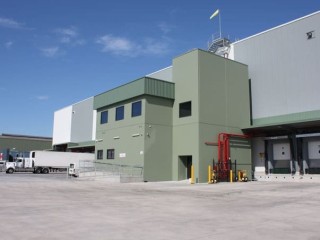 A typical cold storage facility would face a $100,000 a year rise in electricity charges under the Federal Government's proposed carbon tax, shadow minister for agriculture John Cobb claimed today.
A typical cold storage facility would face a $100,000 a year rise in electricity charges under the Federal Government's proposed carbon tax, shadow minister for agriculture John Cobb claimed today.
With the Carbon Tax effectively a tax on electricity, food sector support businesses like cold storage facilities would have their profitability slashed, Mr Cobb said in a statement.
Almost all perishable foodstuffs spend time in cold storage either chilled or frozen, he said.
Cold storage businesses specialise in providing services in temperature controlled storage and inventory management. Facilities are strategically located in close proximity to primary production areas, manufacturers and transport arteries linking rural Australia with urban consumers and export ports.
“Cold storage businesses will join the long list of small to medium-scale businesses in the supply line that will be hit by the Gillard Government Carbon Tax,” Mr Cobb said.
“With a carbon tax, an average cold storage business that stores 65,000 pallets of produce would see its annual electricity bill skyrocket by more than $100,000.”
That cost would have to be passed back to customers, whether they be beef exporters or major supermarket groups storing fruit and vegetables or dairy items.
“For businesses of this type that often employ more than 200 people, carbon tax cost increases will have a severe impact,” Mr Cobb said.
“A cold storage facility of this size can stock 1500 refrigerated trailer loads of produce at one time. With the massive increase in fuel costs for heavy transport to be imposed after the next election there will be a further crippling blow to this industry,” he said.
“Because of the high Australian dollar the cold storage industry has already had to restructure some of their business away from export-focussed customers and are increasingly relying on the limited domestic market.
“Chilled or frozen meat or produce kept in cold storage will be severely hit by the carbon tax due to increased production costs, namely electricity and transport,” Mr Cobb said.
“There are only so many costs the industry can absorb, and the reality is there will be no happy ending for the consumer with higher costs of living and less demand for our agricultural produce, particularly as we lose market share in international markets.”
“This carbon tax is bad for food and grocery prices, bad for agriculture and it is bad for regional communities. Prime Minister Gillard is slowing killing agriculture with her carbon tax – the long term consequences of which will be irreversible.”
